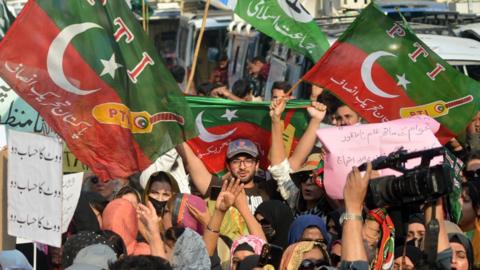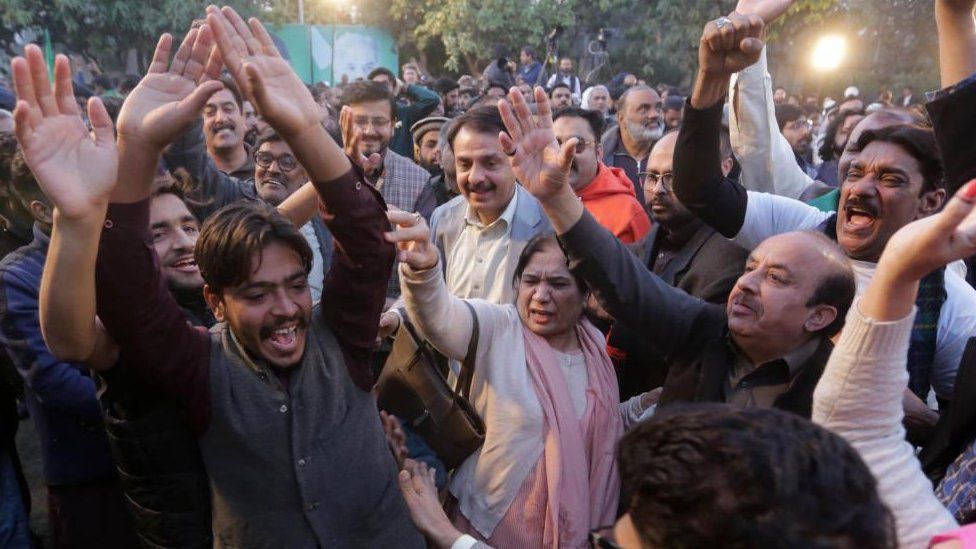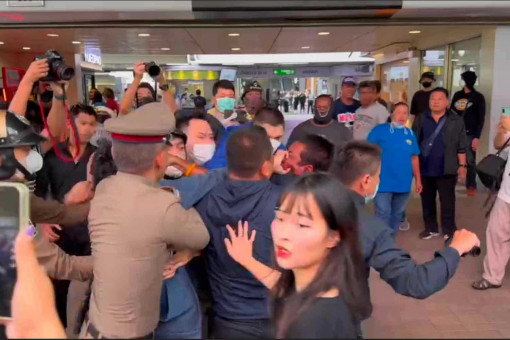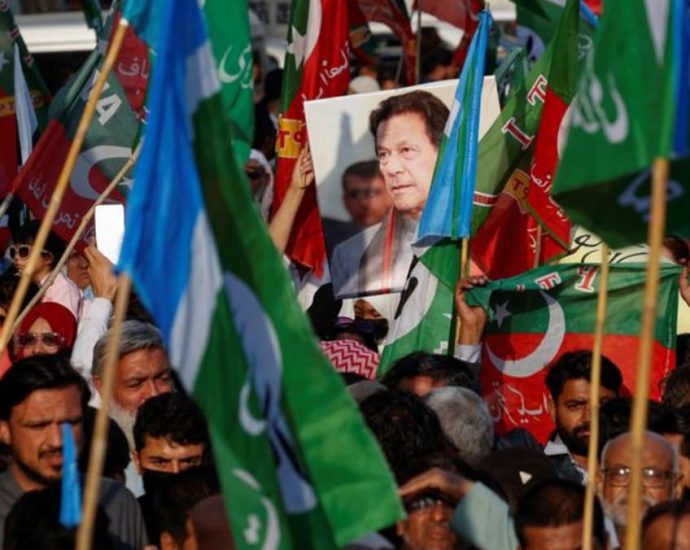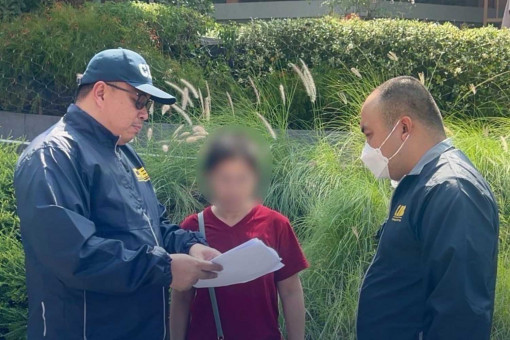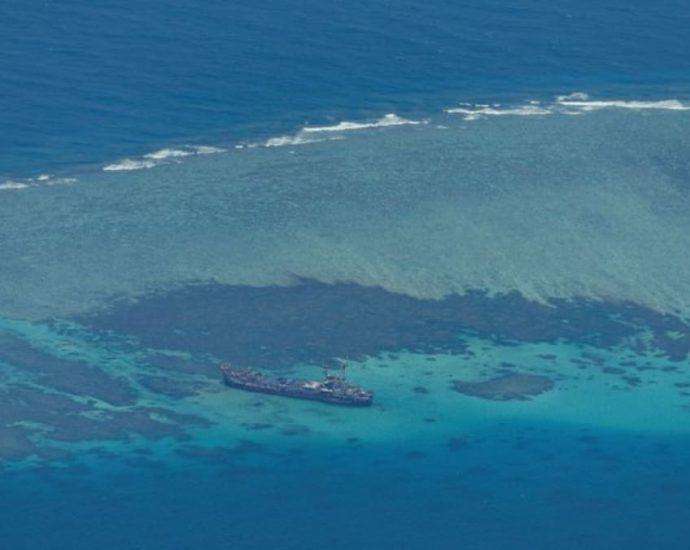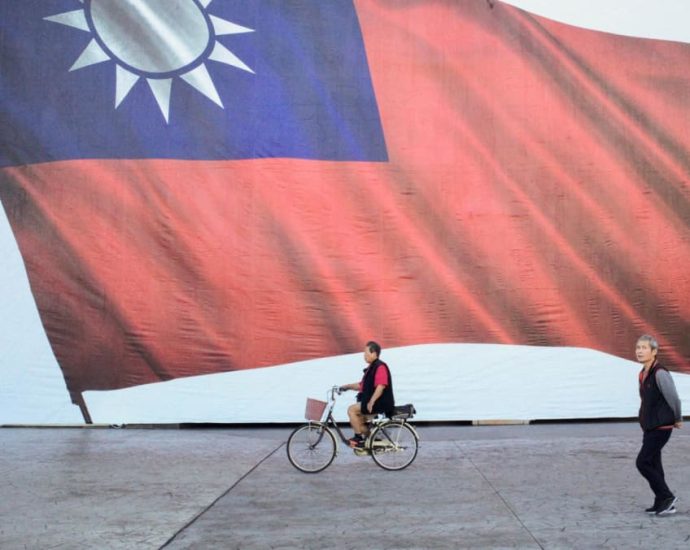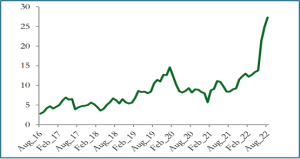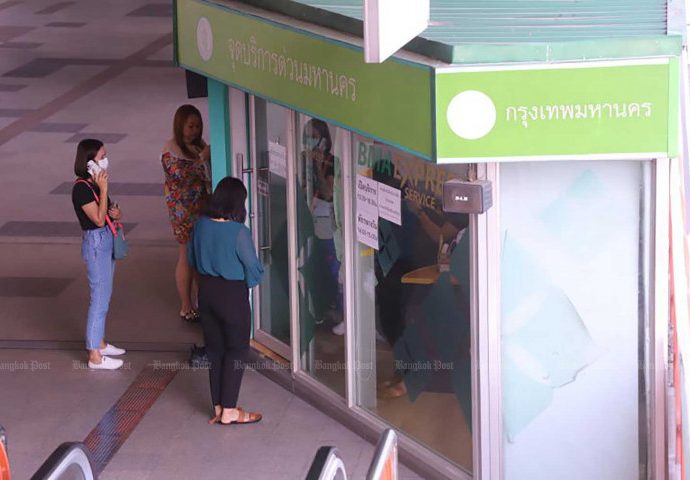Pakistan election: Final results give Khan-backed candidates lead
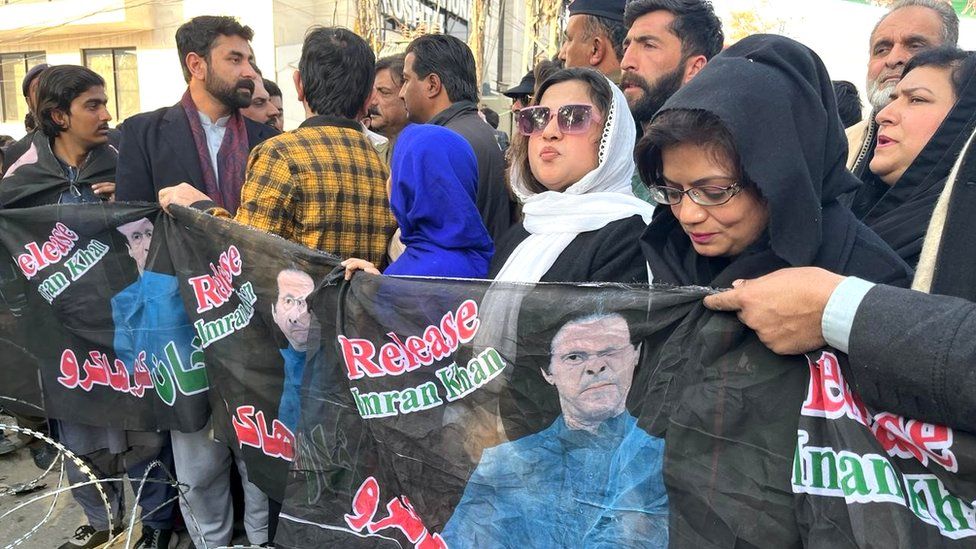
The final results in Pakistan’s general election have put independent candidates backed by jailed ex-PM Imran Khan’s PTI party in the lead.
Independents won 101 of the National Assembly seats. BBC analysis shows 93 of them went to PTI-backed candidates.
That puts them ahead of ex-PM Nawaz Sharif’s PMLN who won 75 and it is unclear who will form a government.
As wrangling continues, independent candidates who did not win have flooded courts with vote-rigging allegations.
Both the PTI, which was blocked from taking part in the election, and Mr Sharif’s PMLN say they want to form the next government.
The result was a surprise as most observers had expected Mr Sharif’s party – widely seen as having the powerful military’s backing – to win given Mr Khan had been jailed on charges ranging from corruption to having married illegally and his party was barred from the ballot sheet.
To govern, a candidate has to show they are at the head of a coalition with a simple majority of 169 seats in the National Assembly.
Bilawal Bhutto from the PPP, which received the third largest number of votes, has said that they have not had any formal discussions with Imran Khan’s PTI or Nawaz Sharif’s PMLN. But the PMLN have said that Mr Bhutto’s father did meet for an informal meeting with Mr Sharif’s brother in Lahore.
The Karachi-based MQM party has also made a surprising return in the polls, winning 17 seats, and could play a role in any coalition.
Of the National Assembly’s 366 seats, 266 are decided by direct voting and 70 are reserved – 60 for women and 10 for non-Muslims – and these are allocated according to the strength of each party in the assembly.
Under Pakistan’s rules, independent candidates are not eligible to be allocated reserved seats in parliament.
On Sunday police blocked streets near the electoral commission building in the city of Rawalpindi in anticipation of protests, while police in Islamabad said action would be taken against demonstrators.
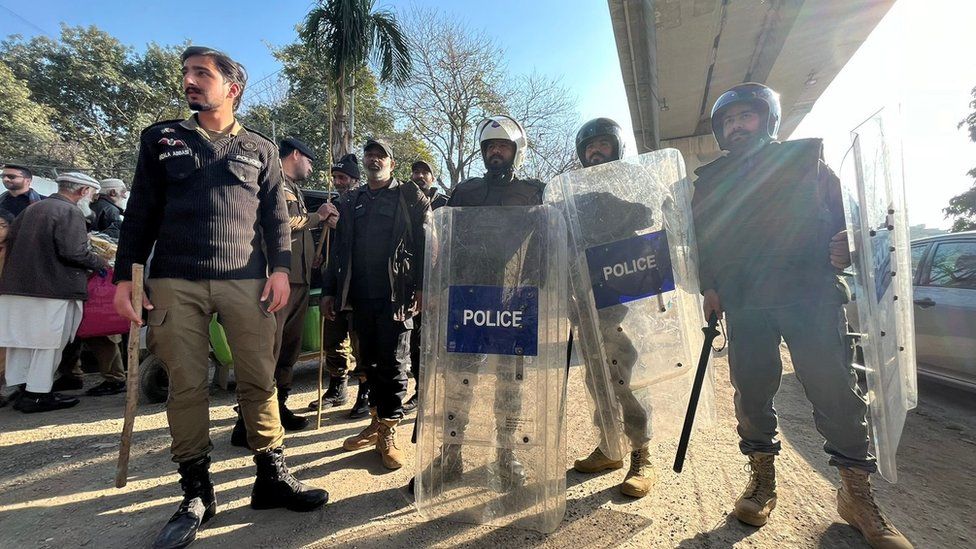
The PTI’s chairman had called for peaceful protests outside electoral commission offices where they were concerned about “forged” results.
On Saturday, Mr Sharif – who is thought to be favoured by the military – called for other parties to help him form a unity government.
Experts have warned Pakistan may be facing a “prolonged period of political instability”.
Dr Farzana Shaikh from the Chatham House think tank told the BBC that the Khan-linked independents were unlikely to be allowed to form a government and many people feared a “weak and unstable coalition” would result from any tie-up between Mr Sharif and the PPP.
Meanwhile at least six PTI-backed candidates who did not win their seats, have lodged legal challenges in the courts to try to get them overturned.
Among them is Yasmin Rashid who stood against Mr Sharif in Lahore. The petitioners allege collusion in the alteration of election results on specific forms.
Pakistani officials have denied any irregularities.
Related Topics
-
-
23 hours ago
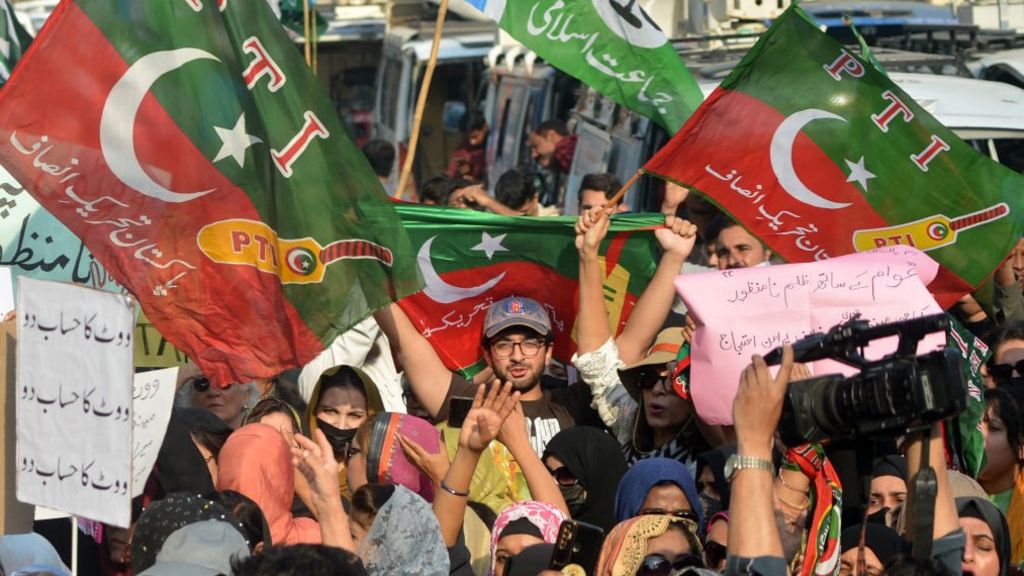
-

